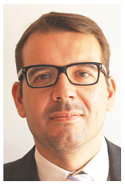Lawyers will be more important as we build a society in which we have an obligation to others
Society needs “legal imagination” because we are entering a world where we need to adopt the principles of transnational or supranational cooperation, says José Manuel Barroso
One of the most famous contemporary British historians, Niall Ferguson, makes some very provocative remarks about the legal profession in a recent book. He says that, in the past, lawyers were basically a progressive force, almost always associated with expanding the bill of rights, for example, or expanding space for freedom, or expanding guarantees for citizens. However, he added that, today, mainly because of regulation, a lawyer often appears as someone who is benefitting from an over-complicated system of regulation and who is not contributing enough to the reform of our societies.
I disagree. I believe that, today, the role of lawyers is indeed decisive and it could be more important in the future because, when I was in political office, one of the points we had to deal with at political level and at policy level was regulation and, more precisely, what is the proper level of regulation. That is why, together with the president of the EU at that time, President Sarkozy of France, I went to Camp David to speak to then American president George W. Bush to ask him to organise the first G20. We wanted to make clear there should be a global effort for some kind of level playing field in terms of regulation for the financial sector. It could not just be the Europeans or the Americans doing something if the others were not trying.
This issue of whether there is a proper level of regulation for the financial sectors is critical. As it is, for instance, with regard to migration. Many years ago I was speaking to Kofi Annan, then secretary-general of the United Nations, and I asked him why is it that we now have regulation for everything in the world, such as energy and human rights, but not specifically for migration? He said the reason was some very strong members of the United Nations, including the security council, do not like to have common world regulations on the issue of migration because they want to keep it as a prerogative of the nation states. That is, for example, giving, or not giving, to someone the status of refugee.
With regard to other issues, climate change, for example, needs some kind of binding regulation at a global level. If not we don´t have a level playing field. All these issues of regulation are going to become more and more important in the age of globalisation, precisely because the national level is not enough. We need in many cases, transnational or even supranational regulation.
I agree with Montesquieu, the great French thinker, who said: “Useless laws weaken the necessary ones.” Too much regulation sometimes kills the subject, it kills precisely the point that we want to favour. But some level of regulation is necessary to find a balance, for example, the balance between the rights of privacy and security – for instance, with regard to the internet, which is today a major issue for the legal profession, for policy makers and for political leaders as well.
Thinking beyond borders
That is why I personally believe lawyers are going to become more important in the future. Lawyers are going to become more important because we need legal imagination. We are coming to a world where what was not possible yesterday has to become possible. This is because the world we are living in is completely different as is the world of the future after the financial crisis. The impact of the financial crisis on the world is huge. It will be another world, a world that needs precisely some of those principles that in Europe we have been developing – not perfectly, but they’re here – that is, things do not stop at our border, we need to have transnational or supranational cooperation.
We have an obligation towards others, not necessarily towards an abstract concept of humanity, but towards others. A famous British author said: “My father loved mankind in general, but he hated every individual in particular.” So, we have to be cautious when someone talks of mankind because it’s easy to love mankind in general but not respect that person, that human, that child that is seeking refugee status, who wants to live with us because he wants to escape war.
And this is the point. We need to develop a society of the future where we can be proud of our countries but at the same time understand what is at stake, and for that I think the contribution, and specifically the intellectual contribution, of the legal profession will be more and more necessary and I hope more and more successful.











